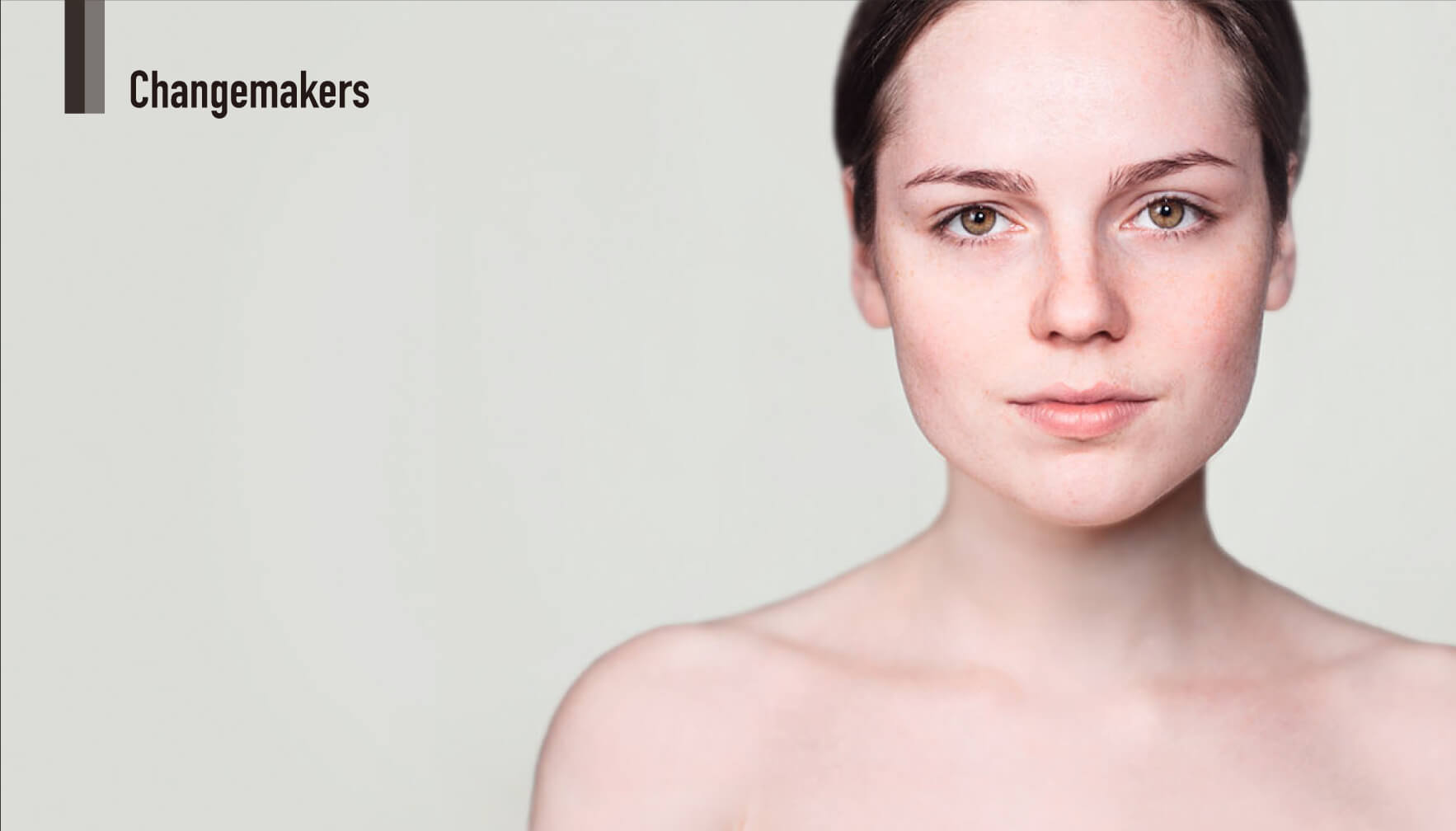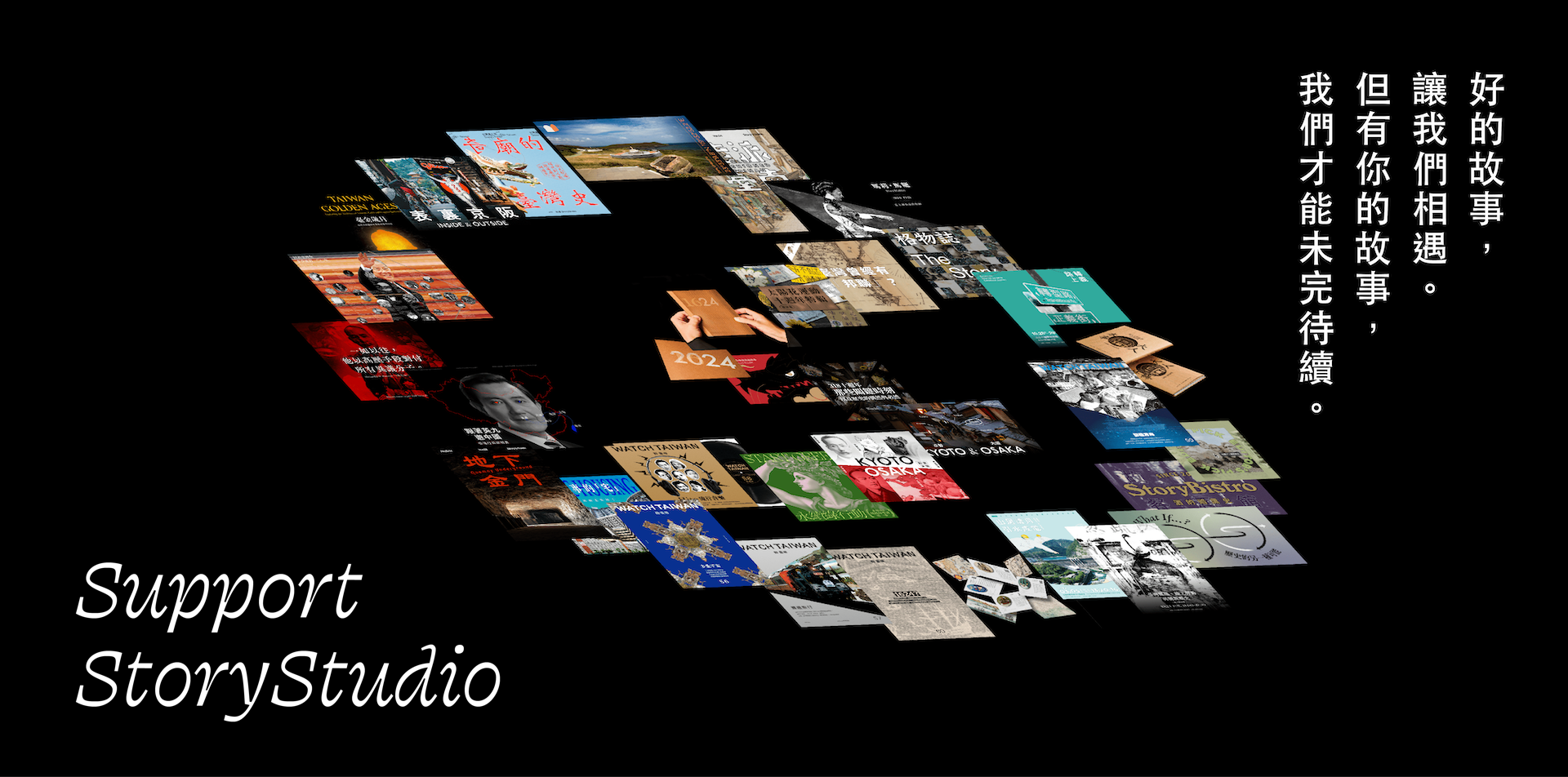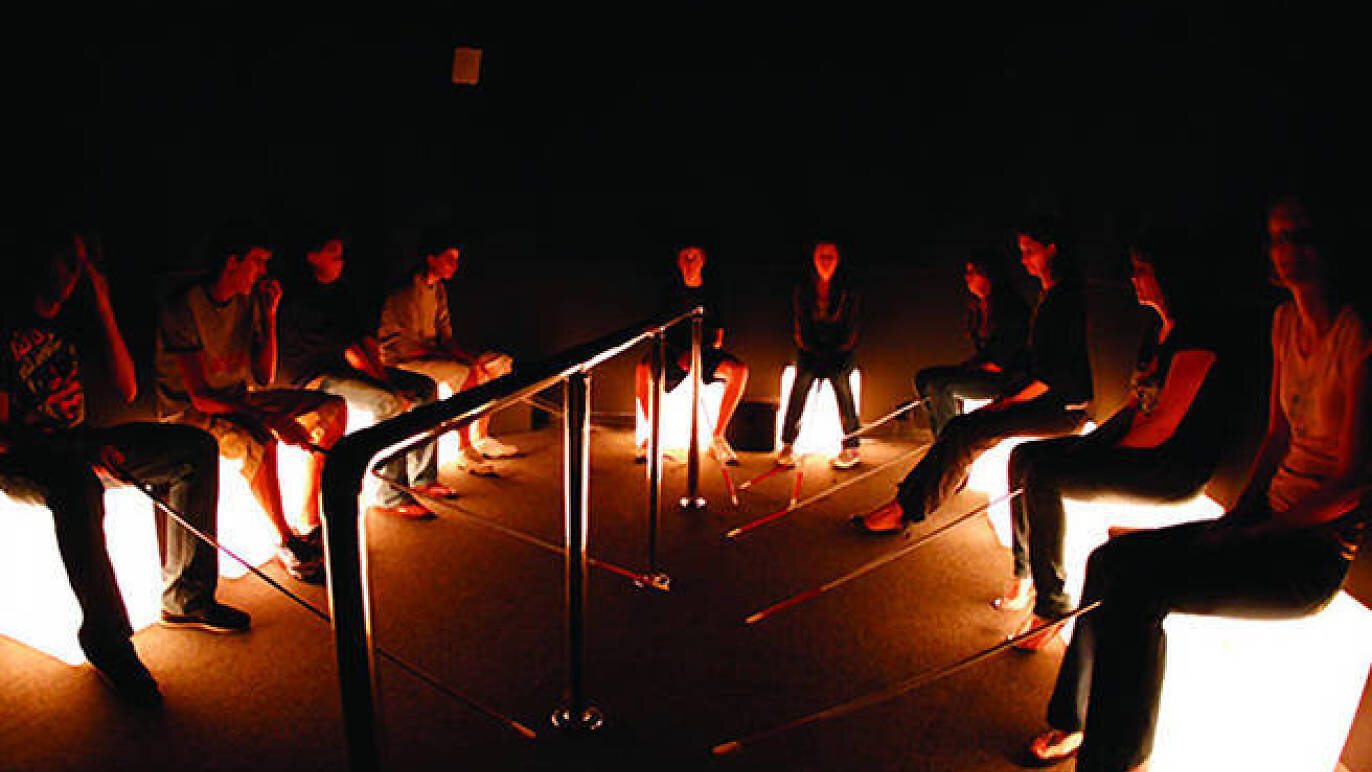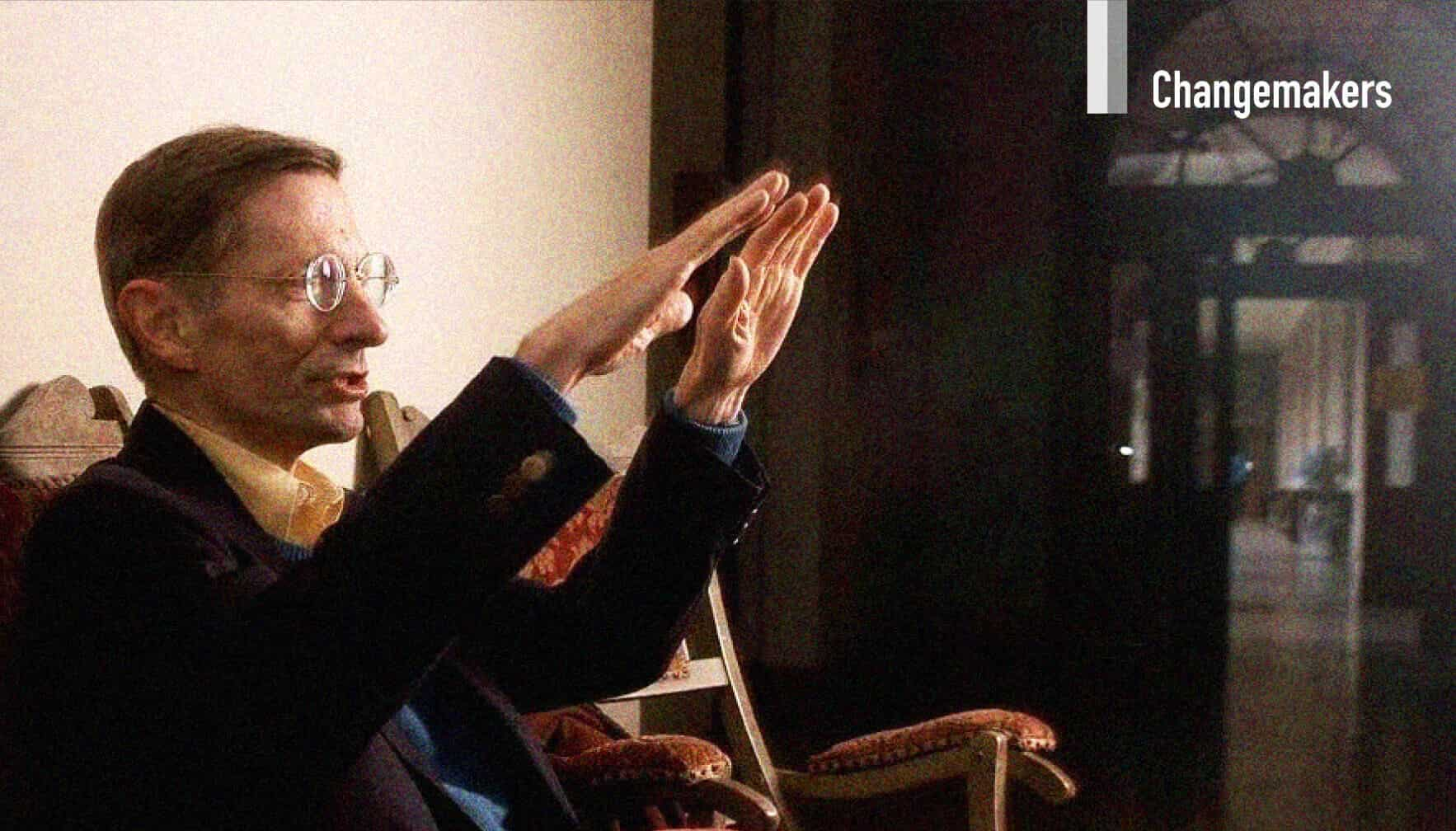“One, two, three. One, two, three…” Despite being blind from birth, Steffi Gedenk, a clinical breast examiner, carefully and professionally feels a patient's breasts, clavicles, and armpits, her hands seemingly doing a gentle waltz. From time to time, the soft and relaxed voices of women conversing and, most surprisingly, laughing together, can be heard from the exam room.
People visit hospitals for various reasons, but no matter why they are there, it is not necessarily viewed as a pleasant experience, especially for women who have to expose their upper torso to medical workers. A breast exam is one such example.
Breast cancer is the most prevalent form of cancer among women in Taiwan. Every year, more than 10,000 women are diagnosed with it and more than 2,000 die as a result, which is equivalent to an average of six per day. In recent years, with increasing public awareness, more and more people are realizing the importance of breast screening to find cancer early on.
However, before undergoing these exams, women inevitably have concerns and questions: Is it better to see a male or female doctor? How many people will be there during the exam? How many people will see me exposed? Many such worries cause great psychological pressure on women before their exams.
Discovery Hands®, Born in the Bathroom
These worries are not particular to women in Taiwan; women in Europe and the US feel the same.
Breast cancer is also a major threat to women’s health in Germany, with an average of one in ten women getting it. The earlier a breast lump is detected, the more effectively spreading can be prevented, and that greatly reduces breast cancer mortality. Therefore, early diagnosis is highly important. Unfortunately, the conditions for preventive diagnosis in Germany have gradually worsened over the past few years.
Early diagnosis techniques include mammograms and palpation (feeling with the hands). After German law was amended in 2005, high-tech and high-cost mammography is only free of charge to women over 50 years old. For those under the age of 50 who do not want to pay for a mammogram, palpation is their only choice. In addition, due to budgeting limits, most doctors only perform simple palpation exams of about a few minutes, which means they are unable to make a thorough check.
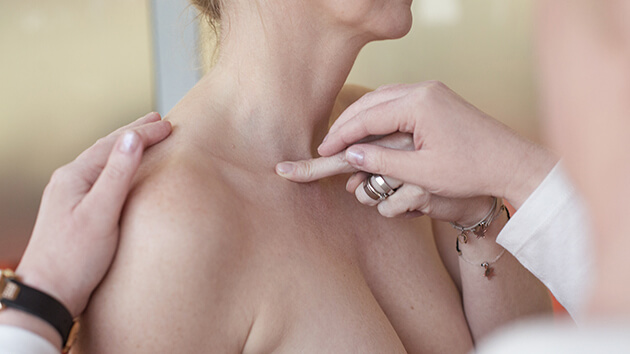
Besides the problem of time, German doctors have not even had standardized palpation training. There is neither mandatory on-the-job palpation training nor an accreditation system, which raises doubts about the expertise of examiners.
Furthermore, some German women become very stressed about the more intimate diagnosis method of breast palpation and simply choose to forego the test. These issues have made Germany a country with one of the lowest breast cancer screening rates in Europe, casting a fatal shadow on the health of German women.
People have racked their brains trying to solve this problem in Germany. The answer was finally found by a gynecologist named Frank Hoffmann.
When Hoffmann was taking a shower one morning, a novel idea came to mind: “Why not utilize the extraordinarily well-trained tactile sense of blind and visually impaired women to improve the experience of palpation? Could they do a better job than I do?” Each patient has only three minutes to be examined, but these three minutes are not long enough for a doctor to find all the small lumps that may be present in breast tissue. But he wondered whether women with visual impairment would be able to do it.
Visually impaired people who have been trained to read Braille tend to have a very sensitive and precise tactile sense, so Hoffmann assumed that women with impaired vision might be better at breast palpation than the average physician.
To implement his idea, he founded the social enterprise Discovering Hands® in 2006 and began to train visually impaired women to become professional medical tactile examiners (MTEs). His aim was, through professional training, to allow visually impaired women to be able to use their keen tactile sense to identify breast lumps earlier and thus save more women's lives.
A Gentle Revolution in the Exam Room
Because of Hoffmann’s novel vision, women who have been overlooked by and faced numerous obstacles in the job market for a long time are starting new careers with Discovering Hands®.
Steffi Gedenk is one of them.
Over the past five years, Steffi, who is blind, has done breast exams for more than 5,000 women. To become a professional MTE who can work on-site, Steffi had to first be trained at a vocational center that cooperates with Discovering Hands® for nine months. She and other visually impaired women learned basic science, anatomy, and biology related to various types of cancer. They also learned how to interact with patients, conduct examinations, and train their tactile sense through various methods, such as sorting different sizes of balls and practicing feeling silicone breasts.
Of course, these visually impaired women are also trained in palpation techniques, which is a delicate and complex technique like dancing. Hoffmann designed a set of five palpation “test strips” based on Braille strips. These five strips with red markings are laid on the breast to form a grid, thus forming a positioning system. Through this two-dimensional positioning system, no matter where the MTE finds a lump, she can tell the doctor its exact location. As a result, MTEs can autonomously conduct the exam.
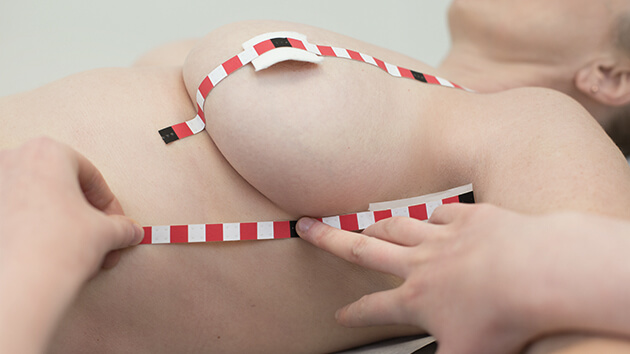
Compared with the short three-minute exams done by doctors in the past, MTEs often spend 30 to 45 minutes on detailed palpation due to the lower costs of their labor. The most unique aspect is that these exams are not in the least bit uncomfortable for the patients. On the contrary, they are quite calm and relaxed, and it gives them a sufficient opportunity to ask questions.
"When we are palpating, we can feel a positive atmosphere, which is different from how it was in the past," Steffi says. "Since we MTEs are women, our patients often feel relaxed. They ask us questions that some doctors may view as ‘stupid’ and tell us about their anxiety."
Patients sometimes even talk about other problems in life, like their partners cheating on them, domestic violence, and sexual abuse. When necessary, Steffi refers them to someone who can help.
In the past, women may have been unwilling to take off their clothes in front of an unfamiliar male doctor based on various concerns or anxiety, and the excessively short exams did not allow enough time to ask questions. Now, since the examiners are of the same gender and can’t see, the patients are less likely to worry. The exam lasting 30 to 45 minutes not only slows down the pace but allows women to build a sense of trust with the MTEs, talk, and interact with them.
Besides that, palpation by a visually impaired woman is an all-new experience for many patients. They can not only learn from the MTEs but also gain a deeper understanding of visually impaired people.
Due to the warmth of visually impaired female MTEs, more women have been doing early screening tests, and the exams have transformed from a cold clinical procedure to a pleasant interaction. You might say a gentle clinical revolution has been started.
Ambassadors of Their Careers
In addition to setting off a revolution in the clinic, Discovery Hands® has also stirred up a whirlwind in the German job market. According to statistics from the European Blind Union, the average unemployment rate of visually impaired persons exceeds 75%, and when gender is taken into account, that of women is higher than that of men.
In 2016, Lydia Simon went to a job fair in Frankfurt, Germany. She was 27 years old and had just spent five years earning her master’s degree in psychology at the University of Mannheim. Despite her impressive educational background, she repeatedly hit roadblocks in her job search, which may have been because she has been blind since she was four years old.
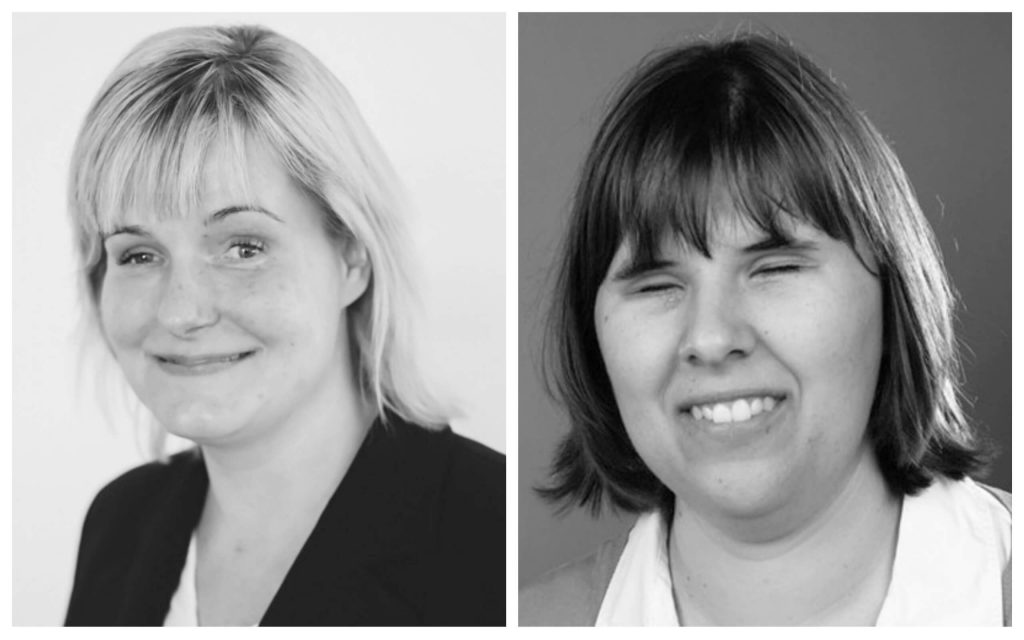
She was absolutely hopeless when she left the job fair and deeply worried about whether she would ever be able to find a job.
They told me, “I’m sorry, you must have a driver’s license,” or, “I’m sorry, you need to be able to read our computer program,” Lydia says. “I thought: My God, is there any job I can do?”
Then, a month later, she heard of a German organization, Discovering Hands®, that only hired blind women for the job of detecting breast cancer. She joined and, after nine months of training, is now an MTE. Not only does she like the job, she also had confidence in her ability.
Lydia should indeed be proud of her skill, as all female visually impaired MTEs should be. In recent years, the women’s clinic at the University of Duisburg-Essen found through 450 case studies that MTEs can find more and smaller tumors than the average doctor.
Tumors usually found by doctors are between 1 and 2 cm, while those found by visually impaired MTEs are between 6 and 8 mm. The difference may be crucial in the time required for cancer cells to spread to other parts of the body. In other words, since MTEs can identify smaller lumps, patients receive needed treatment earlier.
"We are finally no longer hired because of our disability, but because of our ability. No one can do what we do. I work to save lives," Steffi says with emotion. Their hands are their eyes, and they use them to "see" things that others cannot.
The training offered by Discovering Hands® is a source of strength for visually impaired women. Through this process, they turn what was once an obstacle into a strength. They are attracting attention because of their excellent palpation ability. They no longer need to rely on anyone, and they do not have to compete with people without visual impairments in the labor market. While improving the early-stage breast cancer screening environment, they are also changing people's perception of visually impaired people. They are the ambassadors of their careers.
Of course, this job is not for every visually impaired woman. But its significance lies in allowing people to understand that the visually impaired in fact have the opportunity to engage in numerous forms of employment; they are longer restricted to only giving massages. What is most important for them now is whether our society provides them with enough diversified training channels and career paths so that they may make their own choices. Discovering Hands® is a great example of this.
With its success in Germany, Discovering Hands® is actively expanding to other countries. Israel and Colombia are next. Because the costs of breast palpation are much lower than those of mammograms, if successfully promoted in developing countries, it will help universalize breast cancer screening and comprehensively improve medical service quality.
"I'm sure," Hoffmann says, "that in countries that are not as technologically advanced as Germany is, this model will greatly improve their medical care capacity." He clearly sees long-term potential for his organization.
A business organization that solves social, environmental, and welfare issues using its business model. For instance, a social enterprise may create jobs for the underprivileged and offer products or services that are socially responsible or eco-friendly. Profit made by social enterprises are used primarily for re-investment to continue solving social or environmental issues. Social enterprises do not work towards achieving maximum benefits for their investors or business owners
